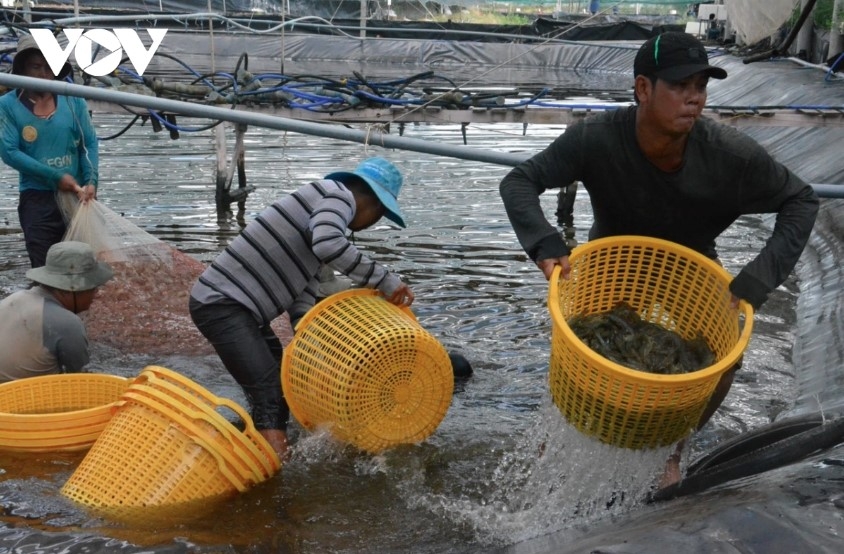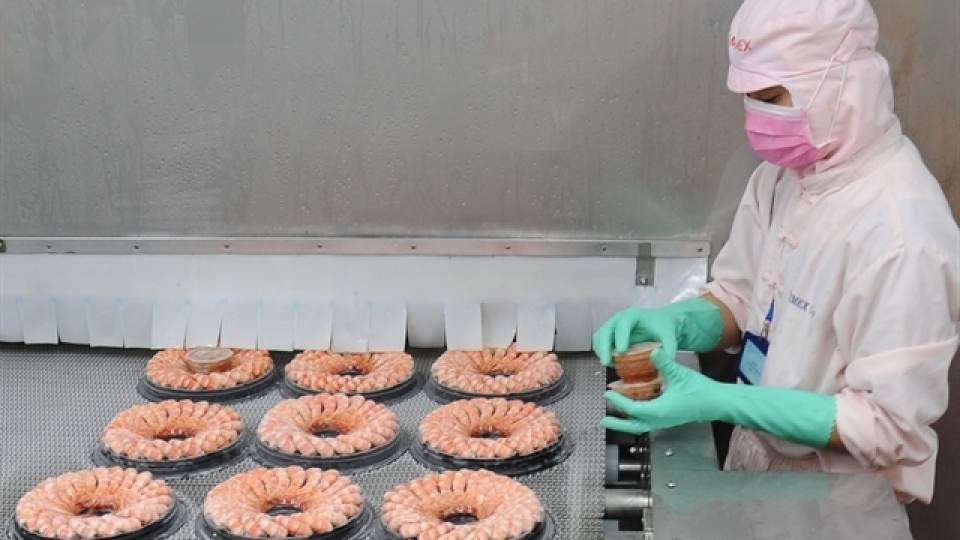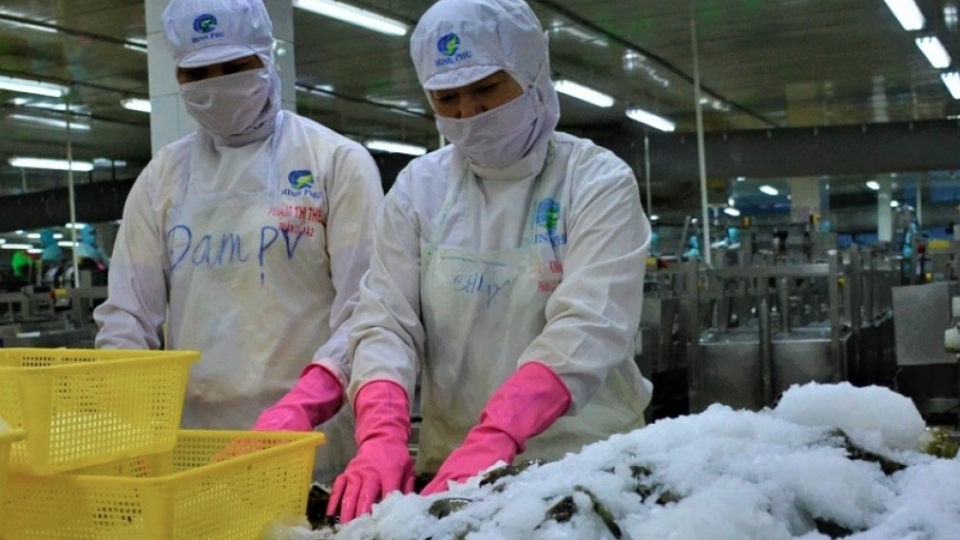Vietnam recognized for top shrimp processing technology
VOV.VN - The country has approximately 750,000 hectares of shrimp farms, yielding an annual output of 1.3-1.4 million tons, and is recognized for having the most advanced shrimp processing technology with a strong advantage in value-added production.

urrently, Vietnam's shrimp industry is undergoing a green revolution, transitioning from traditional to sustainable production, minimizing environmental impacts, and meeting international market standards.
According to statistics from the Directorate of Fisheries under the Ministry of Agriculture and Rural Development (MARD), Vietnam's total shrimp farming area is around 750,000 hectares, with over 200,000 hectares cultivated under organic and ecological practices certified by international organizations. These products have already demonstrated their competitive edge in major and demanding markets.
However, the Vietnamese shrimp industry still faces numerous challenges, particularly regarding trade policies in export markets. To overcome these hurdles, the sector must implement comprehensive solutions, restructure production toward green and responsible practices, prioritize quality, ensure consumer health, and create sustainable value-added products.
Nguyen Thi Phuong Dung, a representative from the Directorate of Fisheries, noted that Vietnam's primary shrimp export markets include China, the Republic of Korea (RoK), the US, Japan, and the European Union.

Given the tightening trade policies and the global shift towards green, clean, safe, and sustainable agriculture, it is essential to develop water-efficient aquaculture technologies, optimize input usage, and reduce antibiotic use in shrimp farming.
Additionally, efforts should focus on intensifying disease control, ensuring food safety in aquaculture, promoting the adoption of recycling technologies, utilizing agricultural by-products, advancing circular economy models, and cutting greenhouse gas emissions.
"Technical advancements in shrimp farming, particularly those aligned with green growth and circular economy principles, offer numerous solutions for energy savings, input efficiency, and environmental sustainability within our shrimp farming community," Dung added.
The Directorate of Fisheries is working with international partners to carry out projects supporting green growth and circular economy practices in shrimp farming. Notably, it is working with the German Agency for International Cooperation (GIZ) on improving water recirculation systems for sustainable aquaculture and with the World Wide Fund for Nature (WWF) on promoting sustainable forest management and biodiversity conservation, and is in the approval process for a climate-smart coastal community adaptation project.
According to the Directorate, Vietnam's shrimp industry is undergoing a major transformation, shifting towards sustainable production through technology adoption and digital transformation. Many businesses have actively invested in eco-friendly farming technologies, while stepping efforts to reduce environmental impacts, comply with international standards, and earn GlobalGAP certification.




